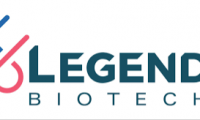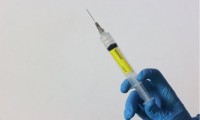-
Legend Biotech’s “CARVYKTI®” was approved for second-line indications in the United States
- Source: drugdu
- 107
- April 8, 2024
-
‘Top-down’ treatment strategy dramatically improves outcomes for Crohn’s patients
- Source: drugdu
- 134
- March 2, 2024
-
FDA Approves Imbruvica Label Expansion to Include Oral Suspension Formulation
- Source: drugdu
- 131
- February 29, 2024
-
Changing protocol language and site actions are key to making trials inclusive
- Source: drugdu
- 98
- February 16, 2024
-
Key Trends from the 2024 J.P. Morgan Healthcare Conference
- Source: drugdu
- 89
- January 27, 2024
-
FDA opens investigation into secondary cancer risk with CAR-T therapies
- Source: drugdu
- 97
- December 1, 2023
-
FDA Launches Probe of Malignancies Linked to CAR-T Therapies
- Source: drugdu
- 113
- November 30, 2023
-
Novartis Enters into Deal with Legend Biotech for $100 Million Upfront
- Source: drugdu
- 106
- November 15, 2023
-
NRx and Nephron join hands to formulate ketamine for depression
- Source: drugdu
- 101
- November 8, 2023
-
CHMP recommends European authorisation for seven new drugs
- Source: drugdu
- 111
- October 19, 2023
your submission has already been received.
OK
Subscribe
Please enter a valid Email address!
Submit
The most relevant industry news & insight will be sent to you every two weeks.













